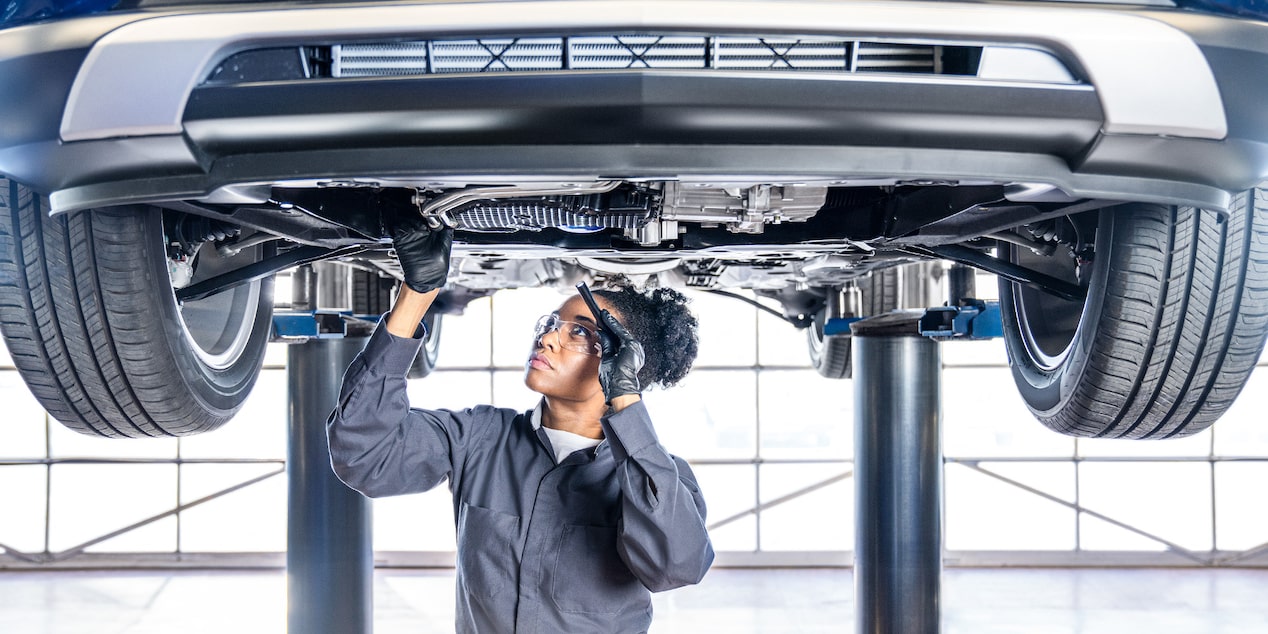All Categories
Featured
Your cars and truck's transmission is among its most important parts, straight impacting efficiency and drivability. Whether your automobile is manual or automated, the transmission guarantees that power from the engine is properly transferred to the wheels. Unfortunately, transmission problems can occur gradually, bring about pricey repair work if not dealt with early. Acknowledging the warning indicators of transmission problem can aid you act before the scenario aggravates. Below's just how to identify those indications early.
![]()
![]()
Verdict. Your automobile's transmission is crucial for its overall capability, and recognizing the warning signs of transmission difficulty early can help save you from costly repair work or even the need for a complete transmission replacement. Normal upkeep, such as altering the transmission and checking fluid, can also assist avoid problems and prolong the life of your transmission.

- When Changing Equipments, uncommon Noises. If you see strange sounds, such as whining, grinding, or clunking, specifically when changing gears, it's a warning for transmission troubles. These sounds might show that the gears are not fitting together appropriately, possibly because of low or unclean transmission fluid, worn-out components, or inner transmission damages. It's necessary to have your transmission examined promptly to avoid further damages. if these noises take place.
- Slipping Gears. Sliding gears can be caused by reduced transmission fluid, used clutches, or malfunctioning solenoids. If you experience this, seek professional assistance as it can lead to additional transmission failing if left neglected.
- Delayed or Rough Moving. If your car waits before moving right into equipment or the changes really feel rough and jerky, it could show transmission problems. Delayed changing or rough changes in between equipments may be an indication that there's a trouble with the transmission liquid, a worn-out component, or an interior breakdown.

- Warning Lights on Your Dashboard. A lot of contemporary vehicles are equipped with innovative sensors that keep track of the efficiency of important systems, consisting of the transmission. If there's a problem with your transmission, the "Check Engine" or "Transmission" light will likely brighten on your control panel. These warning lights signal that something is wrong, and it's ideal to have the automobile checked for analysis problem codes. These codes can assist identify whether the problem exists within the transmission or an additional part of the engine system.
- Burning Odor. A burning smell, particularly when driving or after extended periods when driving, is one more indicator of transmission concerns. This smell typically takes place when the transmission liquid overheats or melts as a result of being low, old, or contaminated. Transmission liquid functions as a lubricant, helping to cool the system and guarantee smooth operation. It can create inner damage to the transmission when it burns. If you discover this odor, draw over right away and prevent driving up until the problem is addressed.
- Liquid Leakages Under the Auto. Transmission fluid leaks are one of the most noticeable indications of a transmission trouble. Reduced fluid levels due to leakages can lead to bad transmission performance and even transmission failing if not addressed without delay.
- Poor Acceleration or Reluctance. If you experience hesitation when trying to increase or observe a considerable delay in your vehicle's reaction to pushing the gas pedal, it could be an indication that the transmission isn't engaging properly. This concern might develop from worn-out transmission components, reduced fluid, or inner damages to the system. Poor velocity can significantly impact your driving experience, so it is essential to have this problem fixed and diagnosed before it results in a lot more extreme problems.
- Inexplicable Vibrations. Unusual resonances while driving can signify transmission concerns, particularly if they take place when the lorry remains in equipment. These vibrations might result from damaged transmission mounts, an inner failure, or imbalances in the transmission system. If the vibrations exist while the cars and truck is in equipment but go away when you remain in neutral, it's time to have your transmission examined by an expert.
Verdict. Your automobile's transmission is crucial for its overall capability, and recognizing the warning signs of transmission difficulty early can help save you from costly repair work or even the need for a complete transmission replacement. Normal upkeep, such as altering the transmission and checking fluid, can also assist avoid problems and prolong the life of your transmission.
Latest Posts
Discover WyHy FCU – Low Rates for Members
Published May 09, 25
1 min read
Transform Your Bathroom in a Day
Published May 08, 25
1 min read
Boost Your Brand Name with Full Circle Strategic Marketing's Advertising and marketing Experience
Published May 08, 25
1 min read